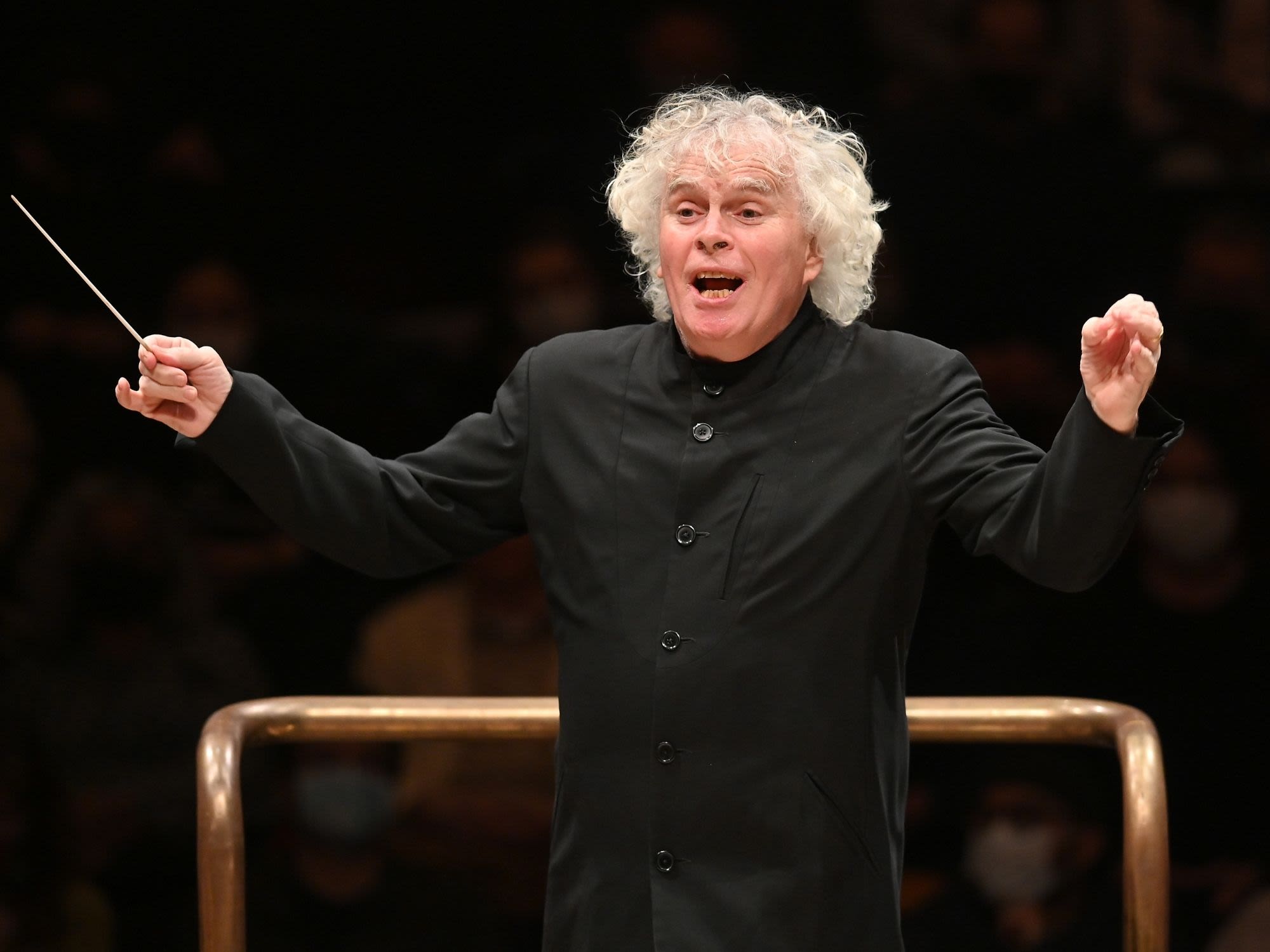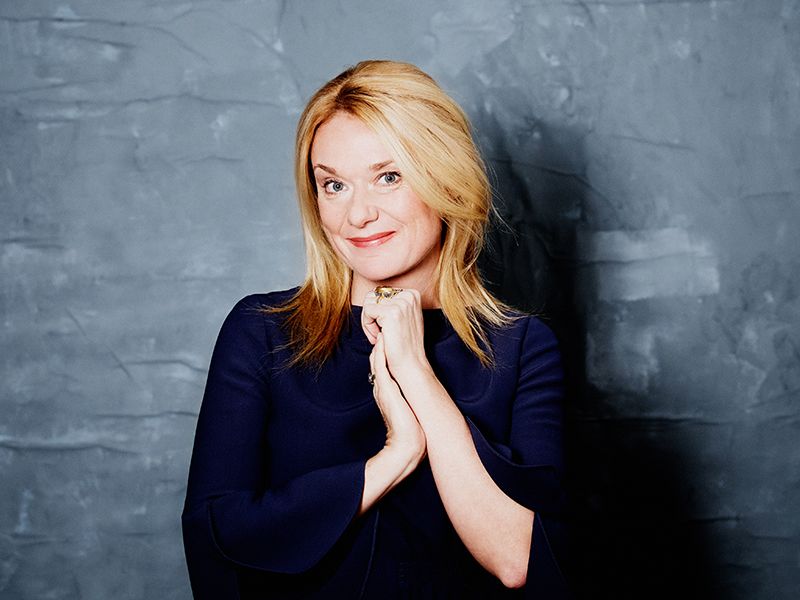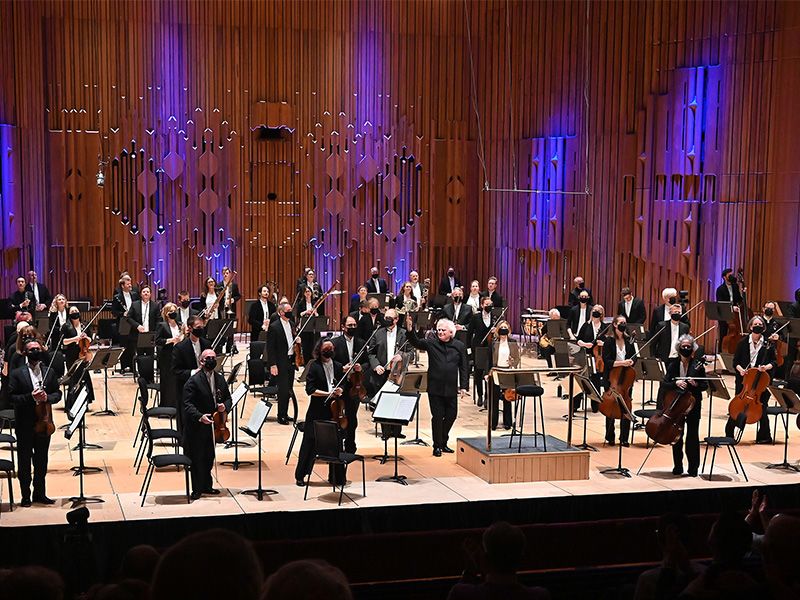LSO Half Six Fix
The Seven Deadly Sins
Wednesday 27 April 2022 6.30pm
Digital Concert Guide

Welcome to tonight's Half Six Fix, a different way to experience the London Symphony Orchestra.
YOUR DIGITAL CONCERT GUIDE
You can use your phone to view this digital guide during the concert, and discover more about the music and performers.
Navigate using the menu icon (≡) at the top of the screen.

There is free WiFi in the Concert Hall, available through the Barbican Free WiFi network.
So that everyone can have the best experience, please set your phone to silent and don’t use other apps during the music. Photos can be taken during applause at the end of the concert.
Tonight's Programme
Kurt Weill
Lonely House from 'Street Scene' *
The Seven Deadly Sins
Sir Simon Rattle conductor & presenter
Magdalena Kožená Anna
Andrew Staples father & tenor *
Alessandro Fisher brother
Ross Ramgobin brother
Florian Boesch mother
Sarah Playfair casting consultant
London Symphony Orchestra
Generously supported by the Jeremy and John Sacher Charitable Trust
This performance is funded in part by the Kurt Weill Foundation for Music, Inc., New York, NY

Lonely House from 'Street Scene'
✒️1947 | ⏰4 minutes

Street Scene, stated Kurt Weill in 1947, occupied a special niche among his 25 plus stage works: ‘It means to me the fulfilment of two dreams which I have dreamed during the last 20 years and which have become a sort of centre around which all my thinking and planning revolved’.
First, he intended to create ‘a special brand of musical theatre which would completely integrate drama and music, spoken word, song and movement’; secondly, following his arrival in the US in 1935, he longed to write ‘an American opera’ – something that he sensed could only be fulfilled on Broadway. It was not until Street Scene that he felt he had achieved ‘a real blending of drama and music, in which the singing continues naturally where the speaking stops and the spoken word as well as the dramatic action are embedded in overall musical structure’.
Street Scene is based on Elmer Rice’s Pulitzer Prize-winning play, set on two oppressively hot summer days in a New York tenement; and as lyricist, Weill and Rice chose the Harlem Renaissance poet Langston Hughes to enhance the realistic, grass-roots character of the work. After the 1947 premiere, Weill won an inaugural Tony Award for Best Original Score.
In Lonely House, the young Sam Kaplan sings of the isolation he feels while observing the sights and sounds of his community at night.
The Seven Deadly Sins
Sung ballet in one act
✒️1933 | ⏰35 minutes
Sung in German, Libretto by Bertolt Brecht, English surtitles by Magdalena McLean, operated by Kelly Lovelady
1 Prologue
2 Sloth
3 Pride
4 Anger
5 Gluttony
6 Lust
7 Avarice
8 Envy
9 Epilogue

Sloth, Pride, Anger, Gluttony, Lust, Avarice and Envy. The spotlight turns on these one by one in the ‘sung ballet’ The Seven Deadly Sins, Kurt Weill’s final collaboration with the playwright Bertolt Brecht. The partnership lasted less than five years in all but nevertheless changed the nature of music theatre in Berlin and beyond.
Like the Mahagonny-Songspiel (their first collaboration, in 1927) and The Threepenny Opera the following year, The Seven Deadly Sins is a critique of capitalism, a key theme of Brecht’s work during the time of Germany’s Weimar Republic between the end of World War I and the rise of Hitler in 1933. It was first performed at the Théâtre des Champs-Élysées in Paris – Weill, like so many Jewish contemporaries, had fled Germany, and had moved initially to France. The Seven Deadly Sins retained the feel of German cabaret: avant-garde, anti-nostalgic, politically motivated, cynical and streaked with dark humour. The vocal writing leaned towards speech rather than to flowing lyrical melody: the lead singing role, Anna I, was taken by Weill’s wife, Lotte Lenya, more a dancer and actress than a conventional singer.
The action concerns a girl from Louisiana, Anna, who is presented as two contrasting personalities. Anna I (performed by a singer) is level-headed and ruled by reason, while Anna II (performed by a dancer) is more spontaneous and ruled by feelings. Anna I is the narrator both for herself and her alter ego, so none of the story is lost in concert performances, like tonight’s, where there is no dancer.
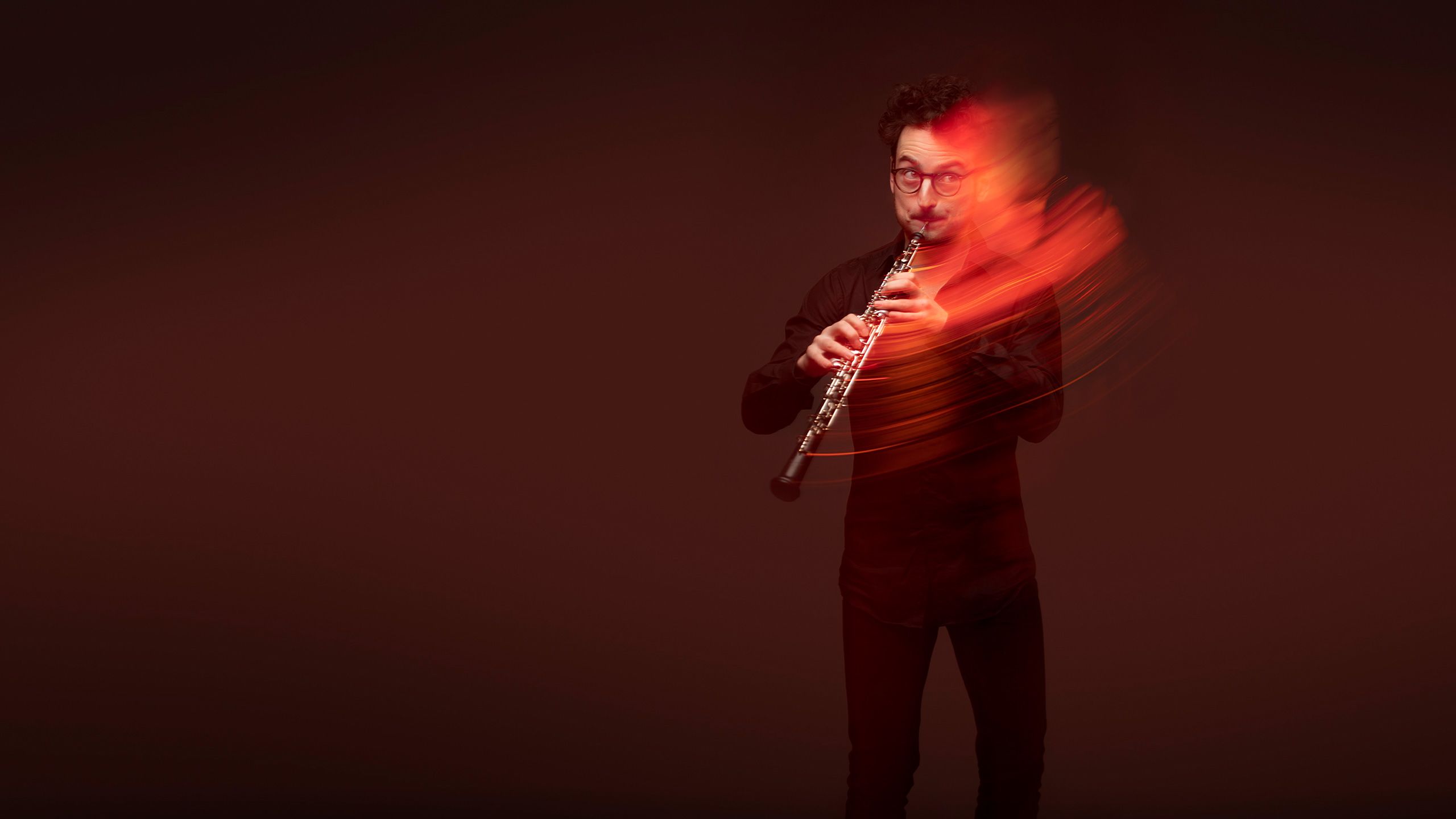
Prologue
Against the tread of plucked strings and the jangle of a banjo, Anna I introduces herself and her alter ego; they are on a seven-year, seven-city journey from their home in Louisiana. Along the way, they aim to make enough money to send back to their Family (mother, father and two brothers, sung by a quartet of male voices) so they can build a small house by the Mississippi River.
Sloth
The Family – amid music of some urgency – hope that Anna will not be distracted from her task.
Pride
In Memphis, Anna has found a job as a cabaret dancer. She wants to create art but the audiences expect something less highbrow … more revealing. Anna I tells Anna II to go with the flow: ‘Pride is only for rich people!’
Anger
Back in Louisiana, the Family is anxious that Anna isn’t sending back enough money. By contrast, Anna I, now in Los Angeles, is optimistic. Anna is an extra in a film about the circus. But when the ‘ringmaster’ behaves cruelly towards a horse, Anna II is angered. True to form, Anna I reasons with her: ‘He who tries to stop injustice is not wanted anywhere.’
Gluttony
In a parody of the American barbershop quartet, the Family sings of a letter from Anna, now in Philadelphia. Anna has found work as a solo dancer, but she is contractually obliged not to put on weight. The Family urges Anna to think of the house.
Lust
Anna II is kept by a rich man, Edward, in Boston, but she loves Fernando, whom she is funding with Edward’s money. Anna I persuades Anna II to renounce her desire for Fernando.
Avarice
The Family is pleased that Anna is making headlines in Baltimore – but they hope she doesn’t chase the money to the extent that people will begin to steer clear of her.
Envy
At their last stop, San Francisco, Anna I explains that Anna II is tired and envious of those who live free of constraints. Anna I, of course, is there to persuade her hotter-headed other half to ignore these fools, who don’t know, and don’t fear, their end.
Epilogue
Anna returns to Louisiana. The little house built on her proceeds is testament to their work and sacrifice. But Weill leaves us with no sense of triumph or resolution. The worldly goods have come at a personal cost, and the return of that slow-march rhythm from the Prologue tells us that in reality the trudge goes on.
Nearly Gone, but Not Forgotten
After its first performances, in Paris in June 1933, with choreography by George Balanchine, The Seven Deadly Sins had a short run at the Savoy Theatre in London, sung in English and presented under the title Anna-Anna. The audience reaction was generally lukewarm. The only other production during Weill’s lifetime was in Copenhagen in 1936 and ran for only two performances. Lotte Lenya was partly responsible for a revival of interest in Weill’s stage works through the series of recording she made in the 1950s. Now one of his most popular works, The Seven Deadly Sins was not staged in Weill’s native Germany until 1960.

Keeping it Real
In his stylish and sometimes withering musical survey Music Ho!, the composer and conductor Constant Lambert described The Seven Deadly Sins as the most important ballet since Stravinsky’s Les noces and Satie’s Parade. He went on: ‘[It] has considerable strength in the way it manages to deal with a modern and emotional subject without … false sentiment or mechanical romanticism.'
I’ll Have One of Those
There was a certain amount of Lust backstage as well as onstage, which played out in a tangle of relationships. Weill and Lotte Lenya (Anna I) were about to divorce. Weill was seeing the wife of Caspar Neher, the production’s designer, while Lenya – under the nose of her new lover, Otto Pasetti, who was singing in the male-voice quartet – was having an affair with Tilly Losch (Anna II). Losch’s husband, Edward James, was the one who commissioned The Seven Deadly Sins, and who suggested in the first place that Lenya and Losch should work together. As it happened, Weill and Lenya remarried in 1937. Lenya apparently had no hard feelings that Weill fell for Neher’s wife: ‘She was a little sexy pony,’ Lenya later recalled. ‘One of those blondes, sturdy and witty. I could see why he would fall for someone like her.’

Faithfull Keeps Faith
Pop star Marianne Faithfull released a live album, 20th-Century Blues, in 1996, featuring a number of Weill’s hits, including Mack the Knife, Surabaya-Johnny, Pirate Jenny and Ballad of the Soldier’s Wife. One reviewer noted: ‘With her ragged, world-weary voice and flair for the dramatic, she lent a gritty honesty and compelling intensity to songs of dissolution and despair.’ The following year she recorded The Seven Deadly Sins with the Vienna Radio Symphony Orchestra.

Another Sister Act
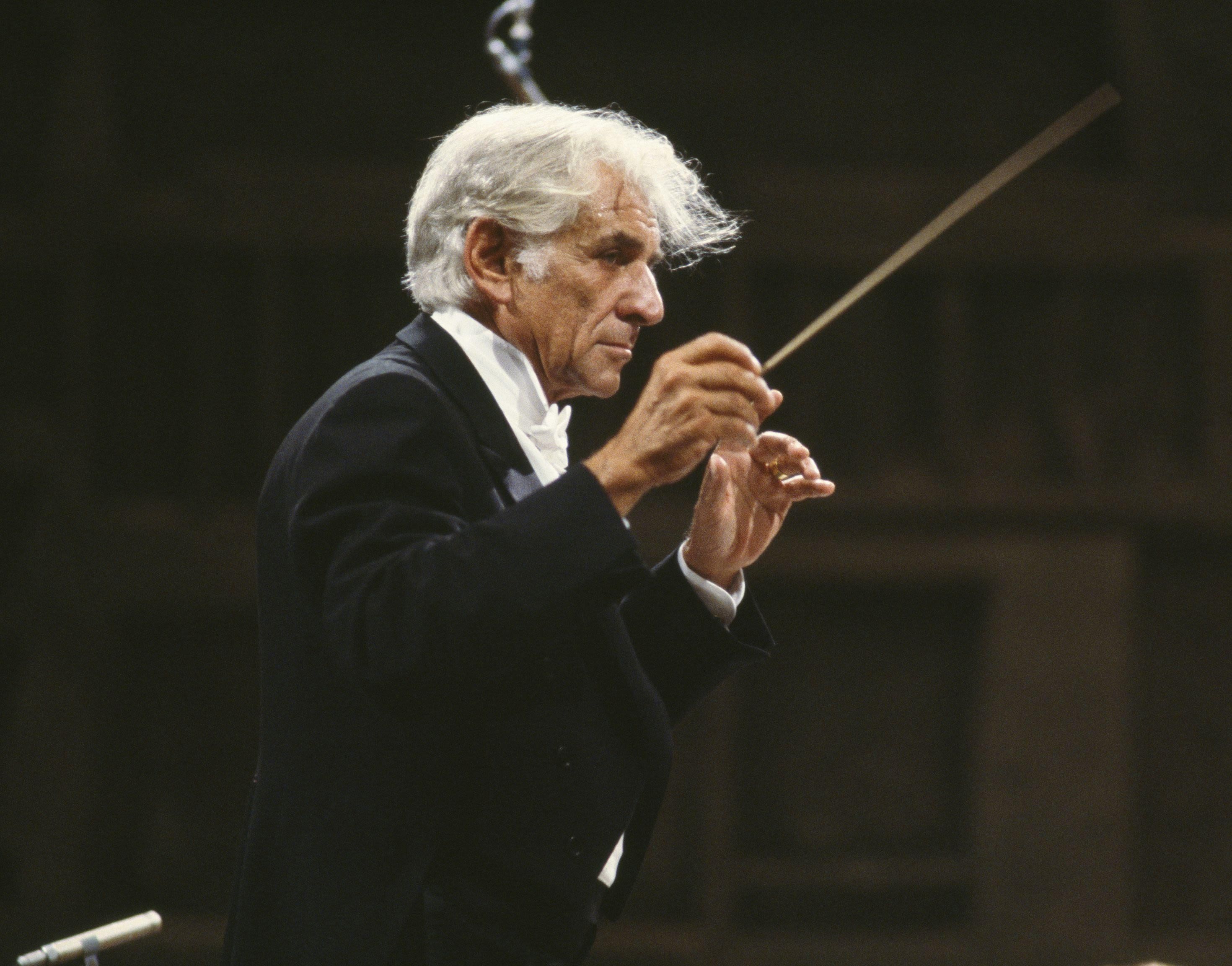
Written two decades after The Seven Deadly Sins but set in the same period (mid-1930s), Leonard Bernstein’s musical Wonderful Town also features two sisters, Ruth and Eileen. Also like the Weill piece, one sister is more level-headed, the other more carefree (an aspiring actress). The pair leave their home in Columbus, Ohio, to try their chances in New York. Wonderful Town offers a more optimistic take on America as a land of opportunity for big dreamers.

Kurt Weill
1900 (Germany) to 1950 (US)
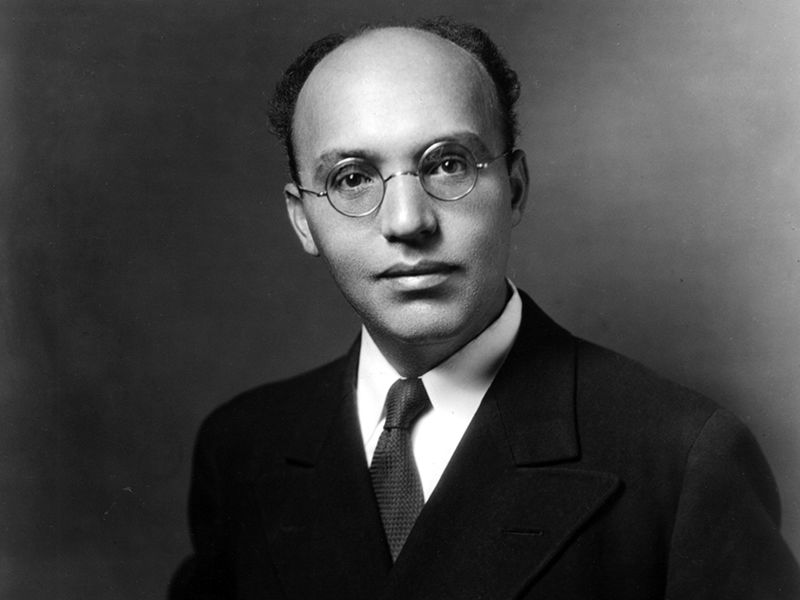
© Kurt Will Foundation, Bridgeman Images
Born at the beginning of the 20th century in Dessau, Germany, Kurt Weill studied in Berlin with Ferruccio Busoni. In 1926 he married the actress Lotte Lenya, who the following year stood in as a last-minute replacement for the premiere of the Mahagonny-Songspiel, Weill’s first collaboration with Bertolt Brecht. The same year Lenya took the role of Jenny in Weill’s most successful collaboration with Brecht, The Threepenny Opera, based on John Gay’s The Beggar’s Opera.
Weill’s mix of Classical simplicity infused with jazz and popular dances was a winning formula. In 1933, the year Hitler came to power, he was forced to leave Germany, eventually finding his way to the United States. Unlike his fellow Jewish contemporary Hanns Eisler, who migrated to Hollywood, Weill became a major figure on Broadway, with musicals including Lady in the Dark, One Touch of Venus, Street Scene and Lost in the Stars. It is for his theatre works and his musicals that he remains best known, but his smaller output of concert works – almost all stemming from before his move to the US – are still performed, among them two symphonies and a violin concerto.
Weill died of a heart attack in New York aged 50. It’s a measure of his success that his songs have been performed by the likes of Frank Sinatra, Ella Fitzgerald, Nina Simone, PJ Harvey, Robbie Williams and Amanda Palmer, and yet his stage works still appear at leading international theatres and opera houses.
'I have never acknowledged the difference between serious music and light music. There is only good music and bad music.'

© Kurt Will Foundation, Bridgeman Images
© Kurt Will Foundation, Bridgeman Images
Tonight's Artists

Sir Simon Rattle
LSO Music Director
Sir Simon Rattle was born in Liverpool and studied at the Royal Academy of Music. From 1980 to 1998, he was Principal Conductor and Artistic Adviser of the City of Birmingham Symphony Orchestra and was appointed Music Director in 1990. In 2002 he took up the position of Artistic Director and Chief Conductor of the Berlin Philharmonic, where he remained until the end of the 2017/18 season.
Sir Simon became Music Director of the London Symphony Orchestra in September 2017, and will become Conductor Emeritus from the 2023/24 season. He will then take up the position of Chief Conductor of the Symphonieorchester des Bayerischen Rundfunks in Munich. He is a Principal Artist of the Orchestra of the Age of Enlightenment and Founding Patron of Birmingham Contemporary Music Group.
Music education is of supreme importance to Sir Simon, and his partnership with the Berlin Philharmonic broke new ground with the education programme Zukunft@Bphil, earning him the Comenius Prize, the Schiller Special Prize from the city of Mannheim, the Golden Camera and the Urania Medal. He and the Berlin Philharmonic were also appointed International UNICEF Ambassadors in 2004 – the first time this honour has been conferred on an artistic ensemble.
Sir Simon Rattle was knighted in 1994. In the New Year’s Honours of 2014 he received the Order of Merit from Her Majesty the Queen. In 2019, he was given Freedom of the City of London.
Magdalena Kožená
Anna (mezzo-soprano)
Magdalena Kožená has worked with conductors including Claudio Abbado, Pierre Boulez, Gustavo Dudamel, Sir John Eliot Gardiner and the late Bernard Haitink, and with recital partners including Daniel Barenboim, Yefim Bronfman, Malcolm Martineau, András Schiff and Mitsuko Uchida, with whom she has performed at Carnegie Hall, Wigmore Hall, Alice Tully Hall, Concertgebouw Amsterdam and more, and at the Aldeburgh, Edinburgh and Salzburg festivals.
She made her Salzburg Festival debut as Zerlina (Mozart’s Don Giovanni) in 2002, and returned as Idamante (Mozart’s Idomeneo) in 2013. Her first appearance at New York’s Metropolitan Opera was in 2003 as Cherubino (Mozart’s The Marriage of Figaro). She has since been a regular guest, most recently in Strauss’ Der Rosenkavalier as Octavian (2019/20). Other highlights include the title roles in Bizet’s Carmen (Salzburg Easter and Summer Festivals, 2012), Charpentier’s Médée (Theater Basel, 2015) and Martinů’s Julietta (Staatsoper Berlin, 2016) and the Waitress in Kaija Saariaho’s new opera Innocence at the Aix en Provence Festival (2021).
In recent seasons, Magdalena has developed a series of projects which have toured widely in Europe and Asia, highlighting her artistry and diversity, including performances of big band numbers from the 1930s and 1940s with The Melody Makers; semi-staged performances of the music of Claudio Monteverdi and Luciano Berio; and performances with Spanish Baroque ensemble Private Musicke and flamenco expert Antonio El Pipa.
Andrew Staples
father (tenor)
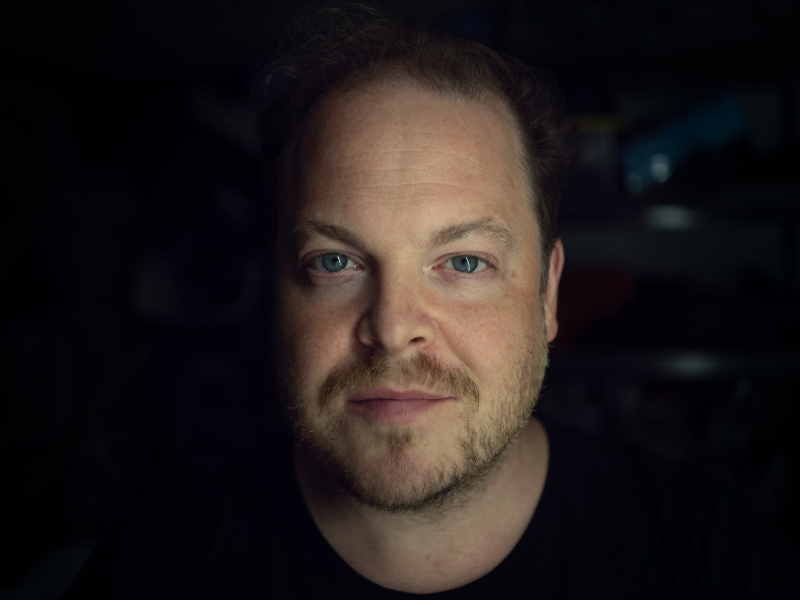
A prolific concert performer, Andrew Staples has appeared with the Berlin and Vienna Philharmonics, Symphonieorchester des Bayerischen Rundfunks and the Orchestra of the Age
of Enlightenment with Sir Simon Rattle; London Symphony Orchestra, Orchestre de Paris and Swedish Radio Symphony Orchestra with Daniel Harding; Deutsches Symphonie-Orchester Berlin and Scottish Chamber Orchestra with Robin Ticciati; Rotterdams Philharmonisch Orkest, Orchestre Métropolitain and Philadelphia Orchestra with Yannick Nézet-Séguin; Accademia Santa Cecilia with Semyon Bychkov; and the Staatskapelle Berlin with Daniel Barenboim.
He made his debut at the Royal Opera House, Covent Garden as Jaquino (Beethoven’s Fidelio), returning for Flamand (Strauss’ Capriccio), Tamino (Mozart’s The Magic Flute), Tichon (Janáček’s Káťa Kabanová), Narraboth (Strauss’ Salome) and Froh (Das Rheingold). He has also appeared at the Metropolitan Opera, National Theatre Prague, La Monnaie Brussels, Salzburg Festival, Hamburg State Opera, Theater an der Wien, Lucerne Festival and the Lyric Opera of Chicago.
Recent and future engagements include his Metropolitan Opera debut as Andres (Berg’s Wozzeck); Nicias in concert performances of Massenet’s Thaïs with the Toronto Symphony Orchestra; and Mahler’s Das Lied von der Erde with the New York Philharmonic, Orchestre de Paris, Deutsches Symphonie-Orchester Berlin and Budapest Festival Orchestra.
Alessandro Fisher
brother (tenor)
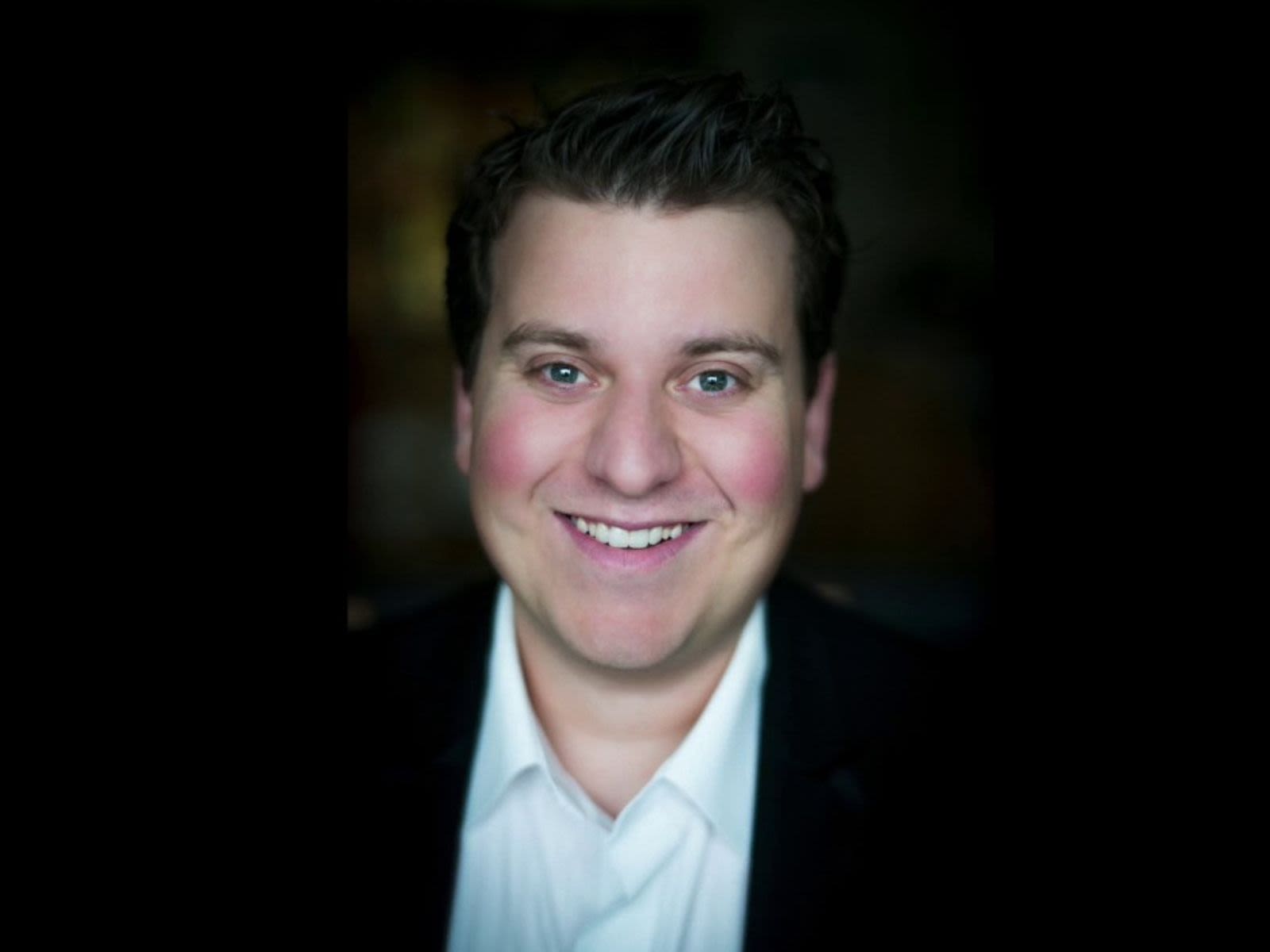
© Gerard Collett
Awarded a 2022 Borletti-Buitoni Trust Fellowship, Alessandro Fisher read Modern Languages at Clare College, Cambridge, furthering his studies at the Guildhall School of Music and Drama. Awarded First Prize at the 2016 Kathleen Ferrier Awards, he is an Associate Artist of The Mozartists and between 2018 and 2021 was a member of the BBC New Generation Artists Scheme, performing a wide range of repertoire in concert and the studio.
He made his Salzburg Festival debut as Lucano (Monteverdi’s L’incoronazione di Poppea) for Salzburg Festival, and his operatic engagements have further included Delmiro/ Alindo (Cavalli’s Hipermestra) for Glyndebourne Festival Opera, Fabio (Handel’s Berenice) for The Royal Opera, London, and Fenton (Verdi’s Falstaff) for The Grange Festival. With the Radio Filharmonisch Orkest, he sang Saint-Saëns’ Oratorio de Noël at Amsterdam’s Concertgebouw, and he has recorded for Chandos, Harmonia Mundi, Retrospect Opera and Signum.
His engagements in 2021/22 include Osvaldo (Mercadante’s Il proscritto) and a Salon Series Recital for Opera Rara, Mendelssohn’s Elias at the Badisches Staatstheater Klagenfurt, Monteverdi’s Vespers 1610 with La Nuova Musica, Vaughan Williams’ Symphony No 3 and On Wenlock Edge with the BBC Philharmonic and The Swinging Sixties with The Mozartists. He also records Britten’s Les Illuminations with the Ulster Orchestra and appears in A Home for All Seasons at London’s Wigmore Hall.
Ross Ramgobin
brother (baritone)
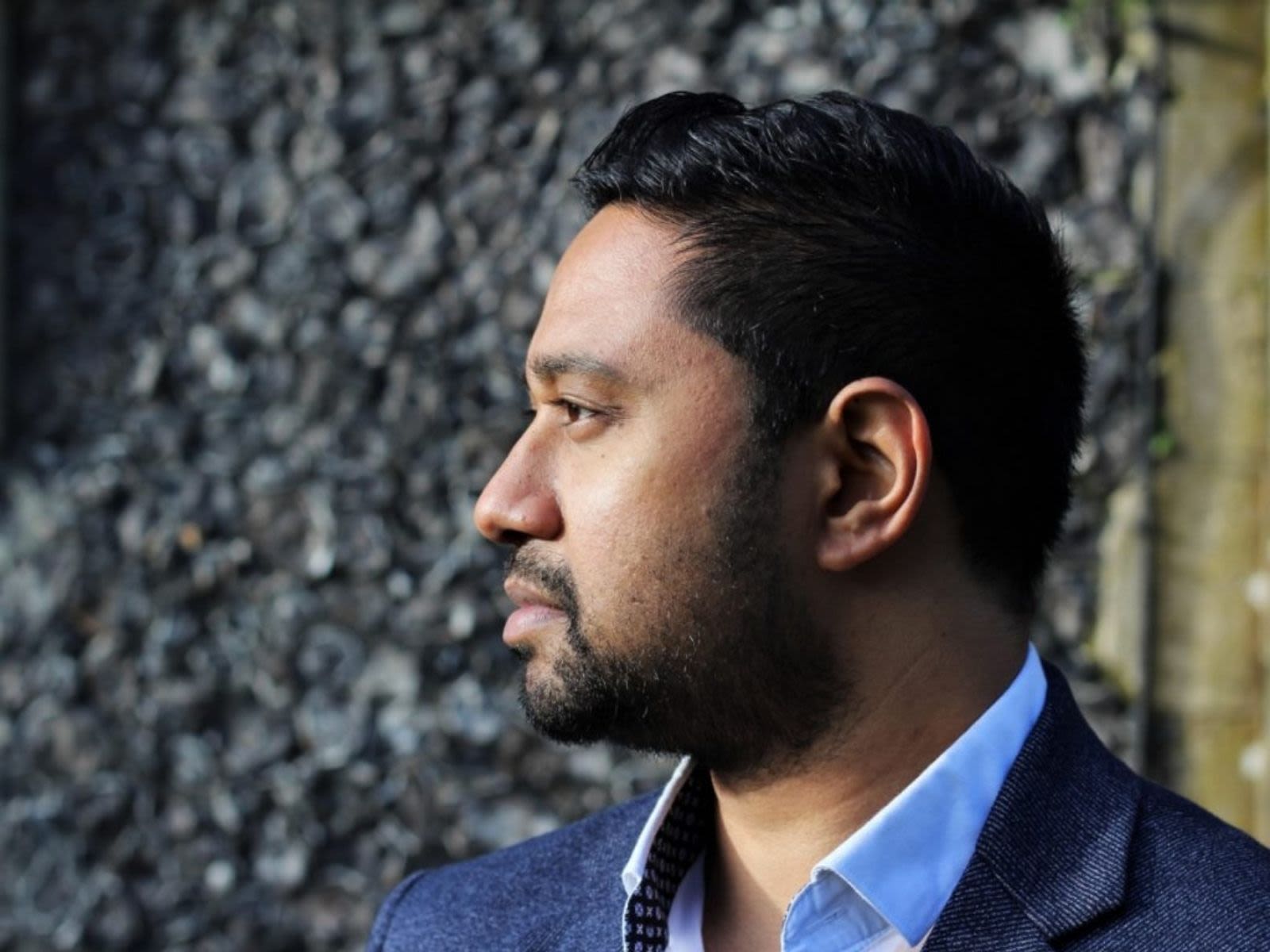
© Billy Goodworth
Ross Ramgobin studied at the Royal Academy of Music and the National Opera Studio. He has sung First Mate (Britten’s Billy Budd), Rambashi (David Bruce’s The Firework Maker’s Daughter) and Miteb (Zaid Jabri’s Cities of Salt) at the Royal Opera House, and at the International Händel Festival in Göttingen, he has sung Pallante (Agrippina) and Arasse (Siroe, re di Persia).
Other appearances have included Gaveston (George Benjamin’s Lessons in Love and Violence) in St Petersburg, Protector (Benjamin’s Written on Skin) for Radio France and at the Vienna Konzerthaus conducted by the composer, and with the Melos Ensemble, Demetrius (Britten’s A Midsummer Night’s Dream) for Israeli Opera), Belcore (Donizetti’s L’elisir d’amore) at the Verbier Festival and Masetto (Mozart’s Don Giovanni) for Angers-Nantes Opéra, as well as roles for Birmingham Opera Company, English National Opera, Opera Holland Park, Welsh National Opera, at the BBC Proms and at the Aldeburgh and Edinburgh Festivals.
Upcoming engagements include a return next season to the Royal Opera House to sing Gamekeeper (Dvorak’s Rusalka) and Schaunard (Puccini’s La bohème), John Adams’ The Death of Klinghoffer at Amsterdam’s Concertgebouw, conducted by the composer, Holst’s Savitri with Britten Sinfonia, Stanford’s Requiem with the CBSO and Vaughan Williams’ Five Tudor Portraits at the Norfolk and Norwich Festival.
Florian Boesch
mother (bass-baritone)
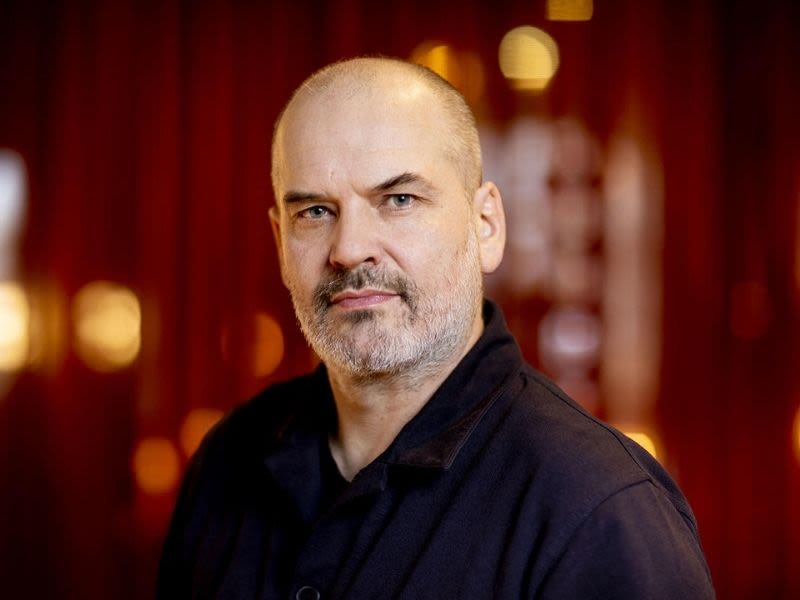
© Andreas Weiss
Austrian baritone Florian Boesch is one of today’s foremost Lieder interpreters, appearing at venues including Wigmore Hall, the Vienna Musikverein and Konzerthaus, Amsterdam’s Concertgebouw, Hamburg’s Laeiszhalle, Philharmonie Cologne, and at the Edinburgh and Schwetzingen festivals, among others. He has been an artist in residence at the Wigmore Hall, Vienna Konzerthaus, Teatro Real, Madrid, and Theater an der Wien. In the 2021/22 season, he is artist in residence at the Elbphilharmonie in Hamburg.
In concert, Boesch has worked with orchestras and conductors such as the London Symphony Orchestra, Vienna Philharmonic, Berlin Philharmonic, Royal Concertgebouw Orchestra, Orchestre Philharmonique de Radio France, Gewandhausorchester Leipzig, Mozarteumorchester Salzburg and Bamberger Symphoniker, with Ivor Bolton, Gustavo Dudamel, Adam Fischer, Iván Fischer, Pablo Heras-Casado, Philippe Herreweghe, Sir Simon Rattle, Robin Ticciati and Franz Welser-Möst. He has performed in many concerts under Nikolaus Harnoncourt at the Vienna Musikverein, the Styriate and Salzburg festivals, and in Berlin and Japan. On the opera stage he recently sung Zoroastro in a new production of Handel’s Orlando and performed the title roles in Berg’s Wozzeck and Handel’s Saul, all at the Theater an der Wien.
Boesch studied with Ruthilde Boesch and in Vienna with Robert Holl.


© Gerard Collett
© Gerard Collett

© Billy Goodworth
© Billy Goodworth

© Andreas Weiss
© Andreas Weiss
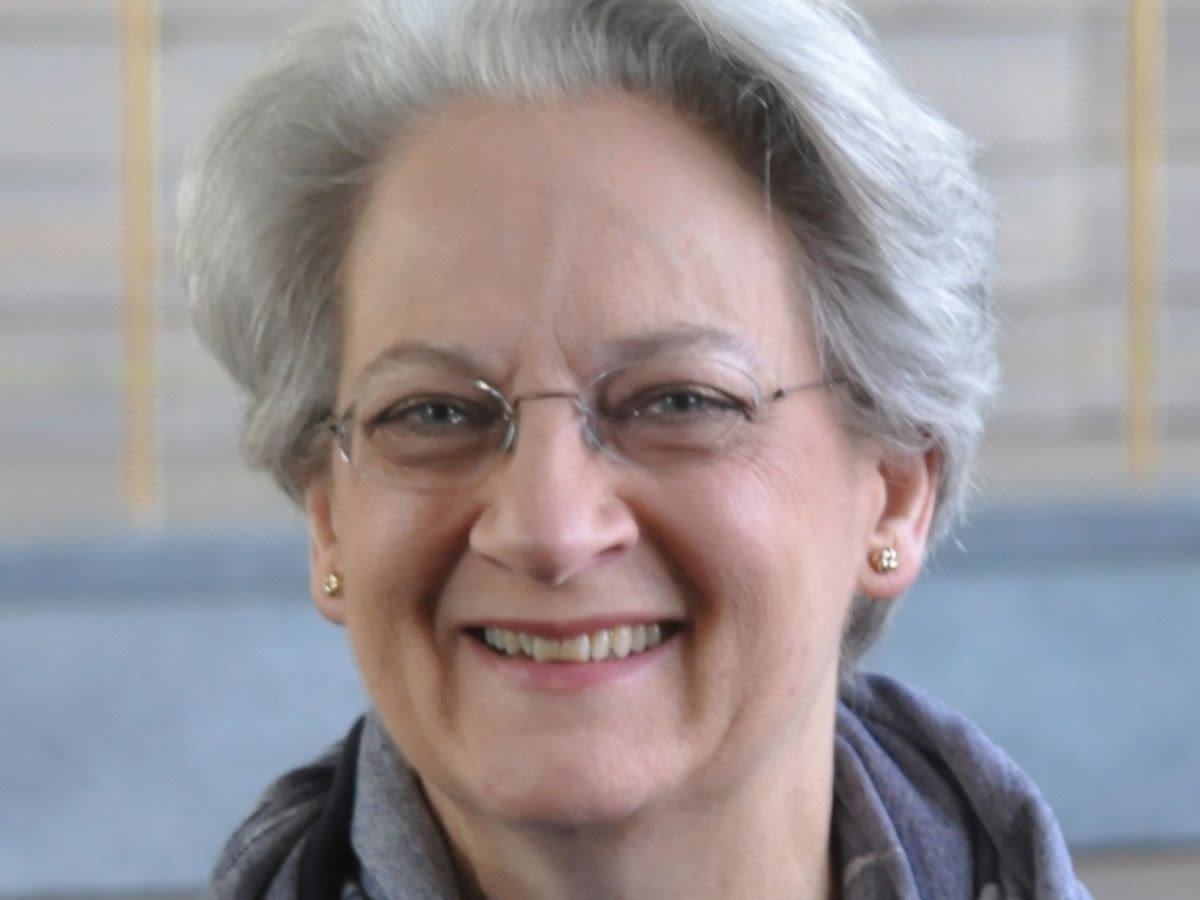
© Matthew Rose
© Matthew Rose
Sarah Playfair
casting consultant

© Matthew Rose
For the last 24 years Sarah Playfair has been a freelance opera casting director working regularly with Garsington Opera, Birmingham Opera Company and Tête à Tête and on a project basis with many other organisations including English National Opera, Music Theatre Wales, Manchester International Festival, the Barbican, London Philharmonic Orchestra, BBC Symphony Orchestra, City of Birmingham Symphony Orchestra, Donmar Warehouse, Almeida, Young Vic, Britten– Pears Arts, Bethlehem Millennium Festival, Channel 4 and the BBC. She was also casting consultant for the film of The Magic Flute (director Kenneth Branagh, conductor James Conlon).
Prior to becoming self-employed she held senior positions with English National Opera (ENO), Scottish Opera, Welsh National Opera (WNO) and Glyndebourne after learning her trade as a stage manager with WNO, as a junior manager with London Contemporary Dance Theatre at The Place, with Prospect Theatre Company and then in the Casting/Planning department of ENO. She has a particular interest in young British and UK-trained singers.
London Symphony Orchestra
At the London Symphony Orchestra we strive to inspire hearts and minds through world-leading music-making. We were established in 1904, as one of the first orchestras shaped by its musicians.
Through inspiring music, a world-leading learning and community programme and technological innovations, our reach extends far beyond the concert hall.
On Stage
Leader
Roman Simovic
First Violins
Clare Duckworth
Ginette Decuyper
Laura Dixon
Maxine Kwok
William Melvin
Claire Parfitt
Elizabeth Pigram
Laurent Quénelle
Harriet Rayfield
Sylvain Vasseur
Alix Lagasse
Csilla Pogany
Second Violins
David Alberman
Thomas Norris
Sarah Quinn
Miya Väisänen
David Ballesteros
Matthew Gardner
Naoko Keatley
Belinda McFarlane
Iwona Muszynska
Andrew Pollock
Paul Robson
Violas
Rebecca Jones
Gillianne Haddow
Malcolm Johnston
Germán Clavijo
Julia O’Riordan
Sofia Silva Sousa
Robert Turner
Luca Casciato
Anna Dorothea Vogel
Cellos
Timothy Walden
Alastair Blayden
Daniel Gardner
Amanda Truelove
Victoria Harrild
Ghislaine McMullin
Simon Thompson
Double Basses
Rodrigo Moro
Martin Patrick
Laurence Matthew
Gibson José Moreira
Jani Pensola
Simo Väisänen
Flutes
Gareth Davies
Sarah Bennett
Piccolo
Sharon Williams
Oboe
Juliana Koch
Clarinets
Chris Richards
Chi-Yu Mo
Bass Clarinet
Thomas Lessels
Bassoon
Rachel Gough
Horns
Timothy Jones
Angela Barnes
Trumpets
James Fountain
Kaitlin Wild
Catherine Knight
Trombone
Peter Moore
Bass Trombone
Paul Milner
Tuba
Ben Thomson
Timpani
Nigel Thomas
Percussion
Neil Percy
David Jackson
Harp
Bryn Lewis
Piano
Elizabeth Burley
Guitar & Banjo
Justin Quinn

